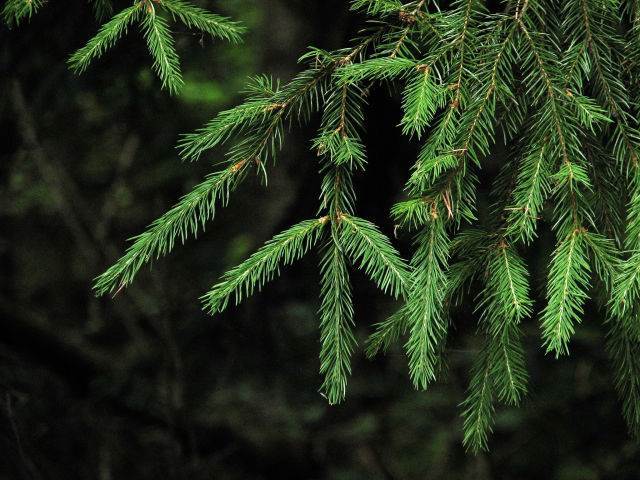
(credit: Oona Räisänen)
We use many words to describe groups of trees: forest, wood, grove, stand, copse… But what about “guild”? (Don’t worry, neither druids nor dryads are about to be invoked.) Woven into the roots of forest trees are mycorrhizae, fungi that are close partners with the trees. The fungi help free up nutrients from the soil, and the trees hook the fungi up with some sugar for their trouble.
Researchers have found that mycorrhizae can actually bind trees into a community by facilitating the transfer of nutrients among them. And experiments with saplings have even shown that sugar can be traded via the “myconet.” Individual trees have always been viewed as separate organisms that compete for light and water, but now it appears that real forests may collaborate in secret ways below ground.
A group of researchers including Tamir Klein, Rolf Siegwolf, and Christian Körner took advantage of a unique experimental setup In a Swiss forest. There, a construction crane houses a carbon dioxide source that runs to five 40-meter-tall Norway spruce trees, where thin porous tubes tied to the branches slowly leak CO2 for the trees to breathe in.
Read 10 remaining paragraphs | Comments
![]()







